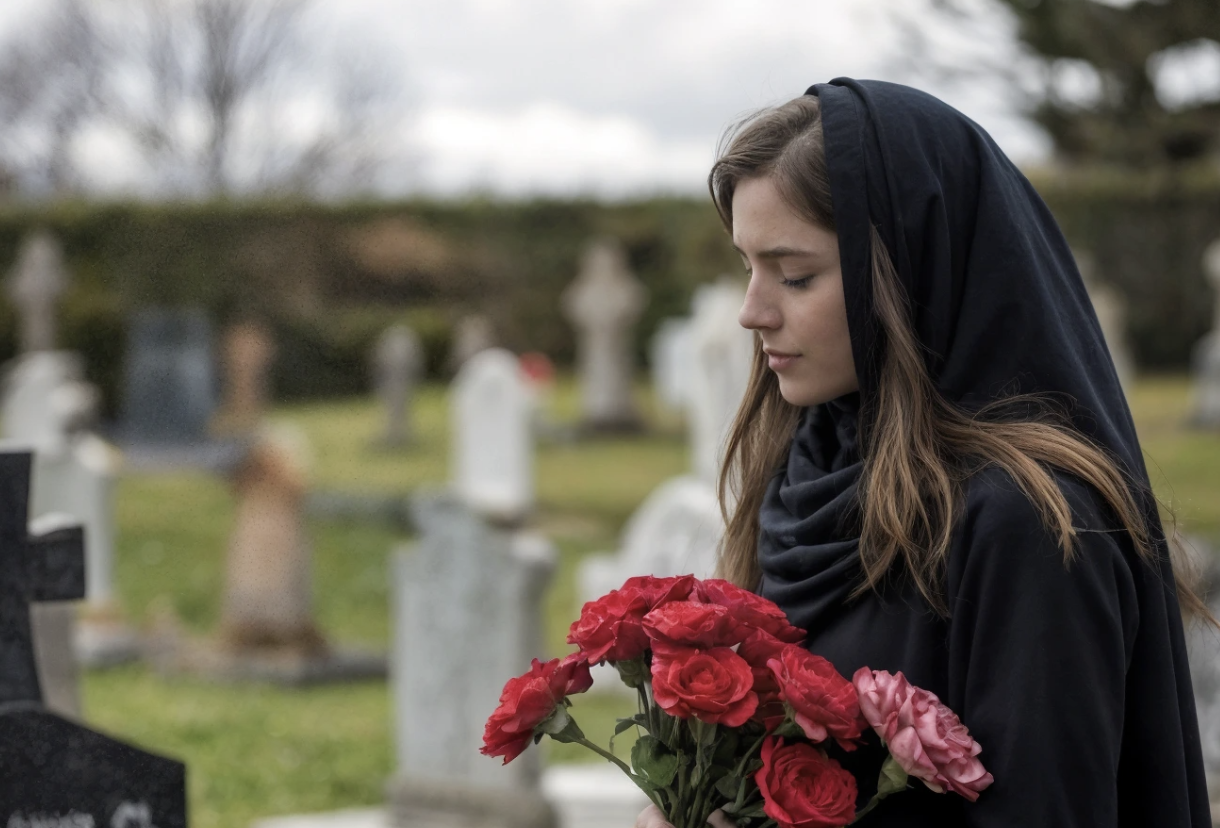In a small village surrounded by endless fields and shady forests, a story unfolded that shook the entire community. Maria was a kind and caring woman, a widow after many years of love with her husband—Ivan. Everyone knew how inseparable they were, how they supported each other through hard times. But after his death, her life changed abruptly.
The neighbors who had once respected and loved Maria began whispering behind her back. Some said she didn’t grieve enough; others condemned her silence, as if sorrow had to be on display. Soon, Ivan’s brother—Vladimir—came to her. He expressed condolences formally, then declared that the house where Maria lived no longer belonged to her. According to him, it should pass to him as a blood relative, and that she had no place there anymore.
Maria was stunned. She had lost her beloved and now even her home. Finding no strength to argue, she packed her things and left the house where she had spent the best years of her life. Her heart was torn by pain and betrayal.
The day after her departure, an event shocked the village. The house Vladimir planned to occupy suddenly caught fire. The blaze was so fierce and unexpected that the firefighters couldn’t do anything—everything burned to the ground.
Rumors quickly spread through the village. Some claimed it was divine retribution for the injustice. Others said Maria possessed some hidden power and could summon her husband’s spirit for revenge. Still, others called the event an ominous sign.
Meanwhile, Maria found refuge in a nearby town. Starting a new life, she still kept in her heart the image of Ivan and memories of the home filled with love. Over the years, villagers began noticing strange changes around them—a sense of unease, unexplained phenomena, as if someone invisible watched their actions. Many were convinced it was Ivan, making sure no one forgot his wife, protecting her even after death.
After several months, unable to bear the village’s pressure and tormented by guilt, Vladimir left his homeland. His name became part of a story tied to injustice and retribution.
Though living far from the fields where daisies once bloomed near their house, Maria felt Ivan’s love always close. At sunsets when clouds gathered, it seemed the wind whispered her name, reminding her that true love never disappears, and that evil done to it receives its reckoning.
Since then, the village became more cautious with people and more attentive to others’ grief. Life slowly returned to normal, but the memory of what happened served as a warning to all: humanity and compassion are the foundation of any community.
One day, Maria herself returned to the village. She had changed—her eyes shining with the inner strength she gained through pain and solitude. Her purpose was no longer revenge but reconciliation. She wanted to reconnect with those who once knew her and bring warmth back to the village that once came from her and her family.
She began helping children learn, taught women crafts, and supported the elderly. Her kindness and generosity united people again, awakening their desire to be closer to each other.
Even those who once judged her now saw Maria not just as a widow but as a woman with great spiritual strength. She did not seek justice or revenge—she chose the path of goodness and mercy. And that changed people’s attitude toward her, restoring trust and respect.
Over time, Maria started organizing charitable events to help the villagers. People gradually united—some brought food, others shared skills to make village life better and more comfortable. Day by day, the village grew closer to its former self—a place where kindness and mutual support were the highest values.
One evening, sitting by the fire with neighbors, Maria shared the story of her love for Ivan. That moment became special—it gathered everyone around a single memory. Though filled with sorrow, it reminded people of bright feelings and bonds that bring us closer. Tears ran down the listeners’ faces—not from pain, but from the warmth of memory and the power love can give even in the hardest times.
By then, superstitions about the mysterious fire that destroyed Vladimir’s house began to fade. Instead, the village started telling different stories—about how Maria transformed their community, restored the joy of simple life, and taught people to truly be kind to one another. The villagers understood an important truth: real strength lies not in revenge, but in the ability to forgive and build a new future.
During the harvest festival, the villagers decided to officially express their gratitude to Maria for her dedication and work. They organized a solemn gathering where everyone could say kind words to her. Surrounded by attention and love, Maria felt warmth spread through her heart. She realized that the love once lost had found a new embodiment—through care, kindness, and the desire to create.
Maria and Ivan’s story ceased to be just a personal tragedy—it became the foundation for the revival of the entire community. The lesson they brought was passed down from mouth to mouth: kindness, compassion, and humanity are always stronger than evil and betrayal. Even the bitterest grief can become the beginning of something bright.
Maria continued living among her people, helping them day by day. Her influence grew year by year. She became a symbol that in the hardest times in life, one can not only lose but also find a new purpose if one knows how to forgive and accept others. Her story remained in many hearts—as an example of boundless love, resilience, and inner strength capable of changing a whole village.
